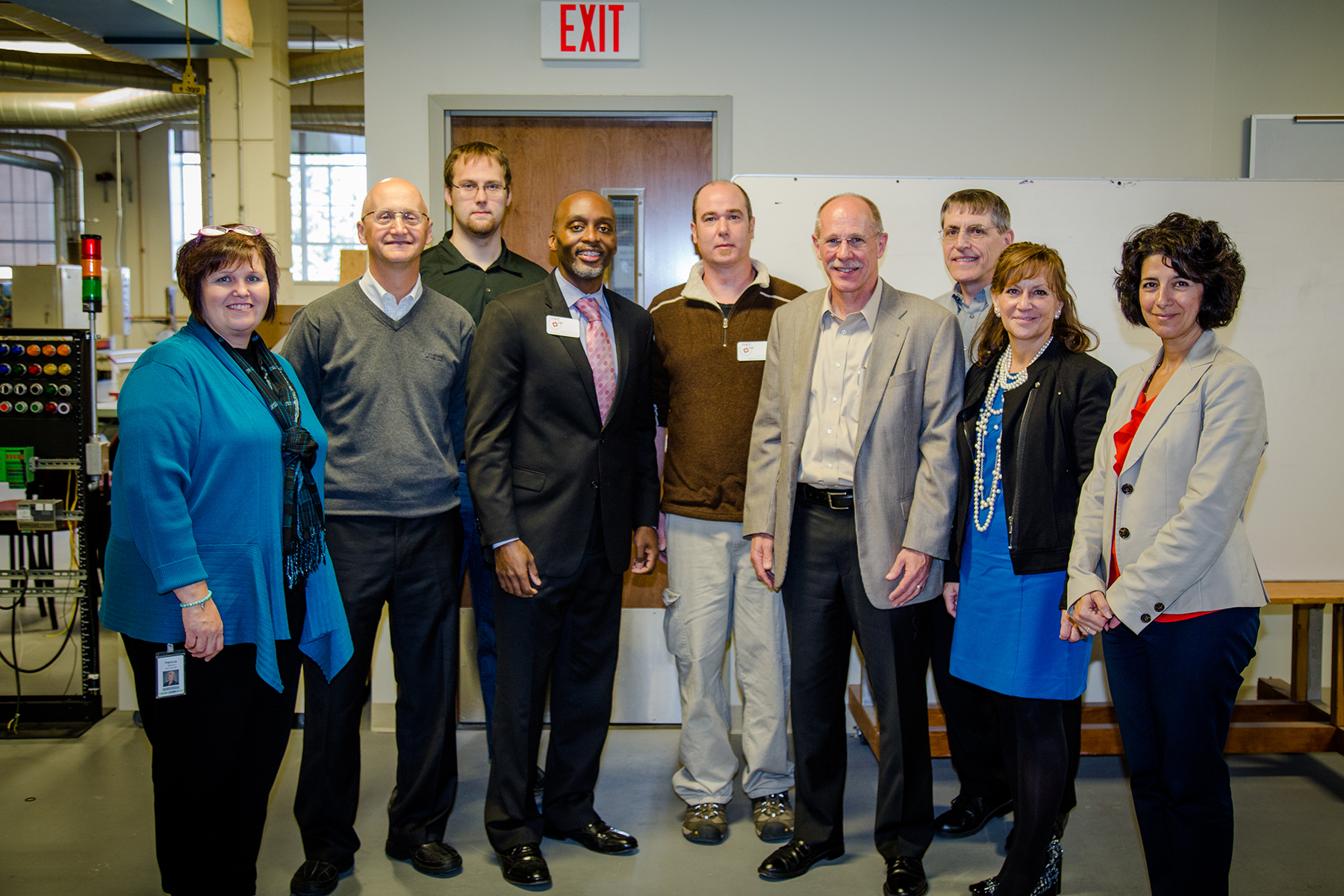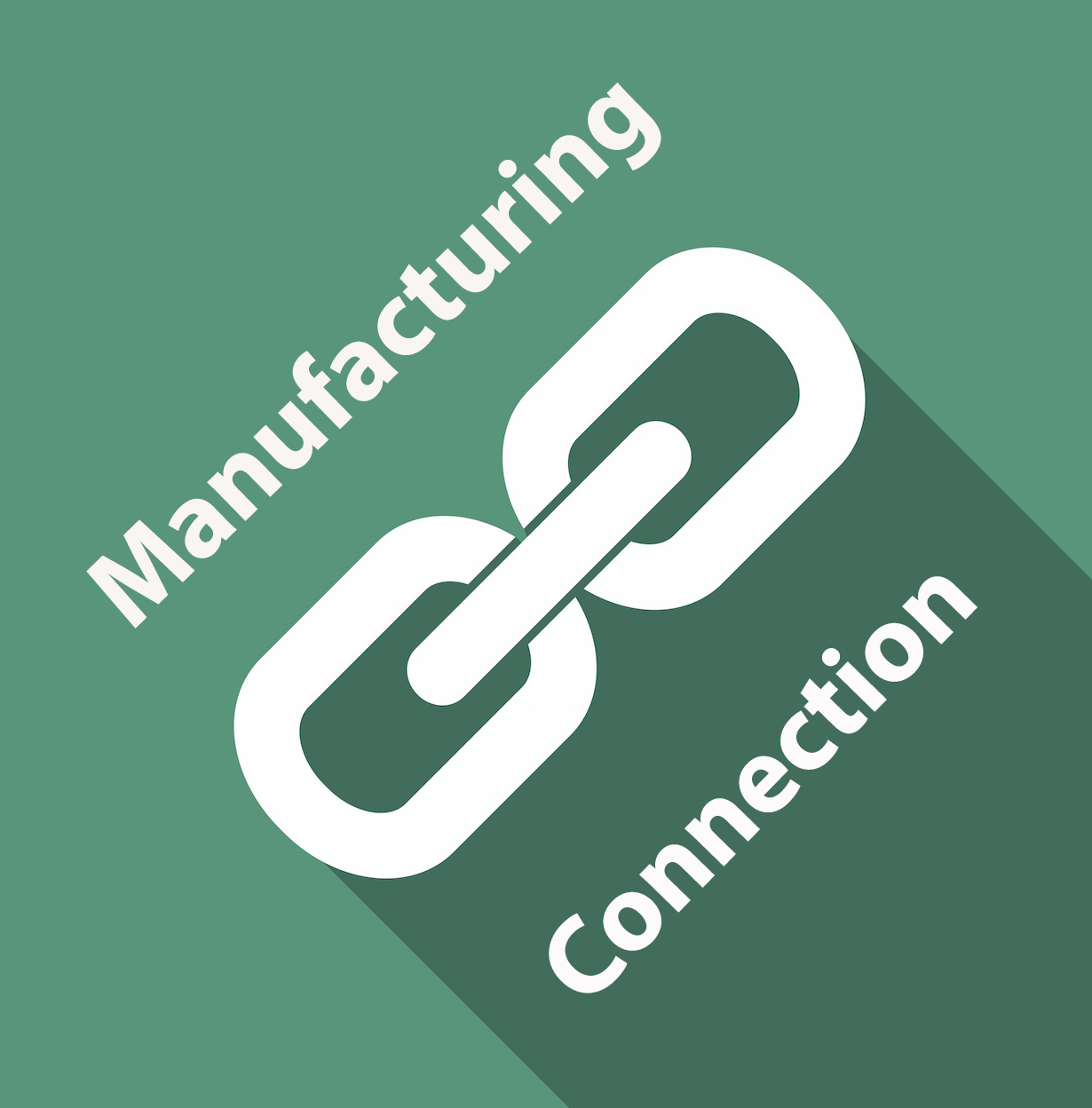
by Gary Mintchell | Jan 22, 2016 | Automation, Education, Internet of Things, Networking, News, Operations Management
 What was once called Information Technology (IT) and then Manufacturing IT (for the IT jobs directly working with the plant such as MES applications) now seems to be falling under the Internet of Things label. Probably part of the reason that there is confusion as to what the IoT term really means.
What was once called Information Technology (IT) and then Manufacturing IT (for the IT jobs directly working with the plant such as MES applications) now seems to be falling under the Internet of Things label. Probably part of the reason that there is confusion as to what the IoT term really means.
Terminology aside, Rockwell Automation and the Industrial IP Advantage (industrial-ip.org) group it has formed have been investing much in providing training on a variety of networking and IT topics. In today’s news, Rockwell Automation and Sunset Learning Institute (SLI) are teaming up to improve and increase access to continuing education and certifications surrounding the Industrial Internet of Things (IoT).
Rockwell Automation has rolled out several courses and a certification program over the last year with its Strategic Alliance Partner Cisco. New courses and certifications can help both IT and OT workers gain the skills needed to manage, administer, design and operate converged industrial networks–now becoming known as industrial internet of things networks. These include the Managing Industrial Networks with Cisco Networking Technologies (IMINS) training course; Managing Industrial Networks for Manufacturing with Cisco Technologies (IMINS2); and CCNA Industrial certification.
SLI specializes in delivering and developing authorized Cisco training. SLI has been a top-tier Authorized Cisco Learning Partner for 20 years. The courses and certifications supported by Rockwell Automation-SLI collaboration include:
- Interconnecting Cisco Networking Devices Part 1 (ICND1): A five-day course on how to install, operate, configure and verify basic IPv4 and IPv6 networks.
- Interconnecting Cisco Networking Devices Part 2 (ICND2): A five-day course on how to install, configure, operate and troubleshoot a small enterprise network.
- Interconnecting Cisco Networking Devices Accelerated (CCNAX): An advanced, five-day course consisting of ICND1 and ICND2 content in its entirety.
- Implementing Cisco Unified Wireless Networking Essentials: A five-day course designed to prepare for the CCNA wireless certification, an associate-level certification specializing in the wireless field.
Students can register for courses via the Rockwell Automation and SLI websites.
Take Advantage of Industrial Internet of Things Opportunities
“Our customers are tasked with building and managing networks and information systems that are different from anything their predecessors confronted,” said Glenn Goldney, global business manager for training services, Rockwell Automation. “Pairing SLI’s qualifications with our own expertise in OT provides IT and OT professionals with premium quality IoT training. These are the skills workers need to take advantage of IoT to drive new opportunities, and unite traditionally disparate practices.”
“The convergence of IT and OT makes it critical that we partner with the very best in the OT space,” said Rick Morgan, CEO, Sunset Learning Institute. “Combining our in-depth knowledge of IT and Cisco markets with Rockwell Automation expertise in the OT space creates an unrivaled partnership in the emerging IoT marketplace.”
SLI also provides a distinct training delivery platform with its High-Definition, Instructor-Led Training (HD-ILT) Network. HD-ILT is SLI’s proprietary video conferencing and patented, remote-lab training modality. Students using HD-ILT have interactive training sessions with two-way, high-definition video and real-time audio, giving instructors and students easy and full visibility of one another.
With over 50 locations across the U.S., Canada and Latin America, the SLI HD-ILT network significantly increases options for IT and OT professionals looking for training without the travel costs. Training is also available in person at Rockwell Automation and SLI facilities across North America. Rockwell Automation and SLI expect to add joint course offerings in the years ahead. All courses are open for registration.

by Gary Mintchell | Nov 6, 2015 | Automation, Education, Operations Management, Workforce
 Educating today’s young people both in essential skills required by modern manufacturing as well as on the careers available to them has become a strategic theme for technology suppliers and for manufacturers alike.
Educating today’s young people both in essential skills required by modern manufacturing as well as on the careers available to them has become a strategic theme for technology suppliers and for manufacturers alike.
Phoenix Contact, a global technology supplier with US offices in Middletown, PA, has announced a partnership with a local community college to achieve just that.
HACC, Central Pennsylvania’s Community College, has become the first American school to join Phoenix Contact’s EduNet program. EduNet is an international education network that brings together schools and industry in the field of automation technology.
Workforce Education
Phoenix Contact and HACC officials announced the partnership Oct. 5, 2015, during the dedication of a new automation lab at HACC’s Midtown Trade and Technology Center in Harrisburg. Phoenix Contact’s contributions through the EduNet program include donating equipment for the lab. This gives students hands-on access to several Phoenix Contact ILC controller and PROFINET starter kits, the same type of equipment they might use once they graduate and work on the manufacturing floor.
Instructors will also receive a curriculum and free training sessions throughout the year. This includes the opportunity to travel internationally to attend a conference where they can network and exchange knowledge with EduNet teachers from other countries. Registration for the conference is free, courtesy of Phoenix Contact GmbH & Co. KG, of Blomberg, Germany, while Phoenix Contact USA will help cover the cost of travel.
Phoenix Contact and HACC previously collaborated on other science, technology, engineering, and math (STEM) education initiatives. Most prominently, they designed and implemented a Mechatronics Apprenticeship program in 2011. Over a four-year period, apprentices simultaneously work at Phoenix Contact while pursuing an associate degree in mechatronics at HACC, at no cost to the apprentice.
In 2013, the Commonwealth of Pennsylvania’s Apprenticeship and Training Council and the U.S. Department of Labor Office of Apprenticeship recognized Phoenix Contact as an official apprenticeship and training sponsor and the first in the state to offer a mechatronics apprenticeship program. This means the program is available to any company that wants to start its own mechatronics program using the Phoenix Contact/HACC program as a model.
“As Central Pennsylvania looks to increase manufacturing jobs, STEM education is the keystone to developing a workforce with the skills to fill these jobs,” said Jack Nehlig, president of Phoenix Contact USA. “Our mechatronics partnership with HACC is a great example of STEM in action. To date, six students have graduated, and we have two more currently enrolled. We hope HACC is the first of many American colleges and universities who take advantage of the learning and networking opportunities EduNet can provide.”
Pictured in the group photo are (from left to right):
Patricia Marrero, Director of Organizational Leadership, Phoenix Contact Services; Jack Nehlig, President of Phoenix Contact USA; Daniel Koprowski, Mechatronics Technician Apprentice; Irvin Clark Ed.D., Vice President, HACC’s Harrisburg Campus; Tom Lepp, Instructor, mechatronics and electronics, HACC faculty member; David Skelton, Vice President. Phoenix Contact Development and Manufacturing; Jerry Wise, Technical Training Specialist, Phoenix Contact Services; Marian Roldan, Vice President Human Resources, Phoenix Contact Services; and Sheila Ciotti, Campus Associate Dean, Academic Affairs, HACC.

by Gary Mintchell | Oct 2, 2015 | Leadership
On my other blog, I write about leadership regularly on Fridays. I saw an article that came through an email newsletter that spurred some thinking. See if you relate to this.
You got shipped off to some type of leadership training. Maybe it was for work. Maybe for church. Maybe for another type of organization.
You attended the training. It was long. The coffee was less than satisfactory. The pastries were stale. The leader was pumped up on something that made him or her optimistic to the point of causing gagging. You recorded a bunch of cute sayings from old leaders in your conference notebook. The talks seemed like they belonged in some sort of old-fashioned tent revival meeting.
You went home. The boss asks what you learned. You show her the notebook with notes.
Nothing changes.
I have been to so many of these that I’m lucky to be able to lead a kid to a candy store!
So the article title on the email newsletter caught my eye. Why Leadership Training Is So Much BS. It is in a manufacturing trade journal called Industry Week written by an acquaintance, Steve Minton. He interviewed Jeffrey Pfeffer author of Leadership B.S.: Fixing Workplaces and Careers One Truth at a Time (Harper Business, September 2015). I’ll have to buy the book, now. Maybe I can score an interview.
Minton writes:
“But a steady diet of inspiration fables, Pfeffer warns, also misleads and does little to improve organizations.” He contrasts the state of leadership training with medical education, which strives to base its teaching on carefully measured studies and their results.
“No wonder medical science has made significant strides in treating many diseases while leadership as it is practiced daily all over the world has continued to produce a lot of disengaged, dissatisfied, and disaffected employees,” he writes.
What can businesses do to improve their leadership development efforts? Pfeffer told IndustryWeek that companies first need to change their evaluation criteria. Too much development work either is not evaluated or evaluated on the basis of enjoyment of the course.
“What are we trying to accomplish in leadership development? If we are trying to attain higher levels of employee engagement, higher levels of trust in leaders, higher levels of job satisfaction, lower levels of turnover, more people succeeding and having more people ready for leadership positions, then those are criteria you ought to use to evaluate your efforts,” he stresses, “not whether or not people had a good time, whether or not they liked the donuts, whether or not they thought the speaker was inspiring.”
Companies must also have people teaching these programs who have at least some expertise in leadership, he adds.
I continue to see people go off to leadership training only to memorize stories and tips. Putting the knowledge into practice is left to chance.
Thinking about various leadership training experiences I’ve had, I’d have to agree about using some sort of science. There was a class in 1981 that has stayed with me–and experience has proved it over again. The trainer displayed a 2×2 matrix. Feel for people (good, poor) versus Intellectual control of emotions (good, poor). Top performing leaders? Feel for people didn’t matter much. Intellectual control of emotions was the key ingredient.
Other than that, I’ve found that better leadership training is done in smaller groups over time. This allows time for trial and error and feedback.
Think Yoda teaching the young Jedi Luke Skywalker.
Find your Yoda. Or, find your Luke.
Me? I’m looking for another Luke to bring along.

by Gary Mintchell | Jun 1, 2015 | Automation, Internet of Things, Manufacturing IT, Networking, News, Operations Management, Technology
How many careers have you had?
Some may have chemical engineering or computer science degrees and are still doing process control or computer networking. But many of us have wound up with a circuitous path to where we are now. In a different industry. Or doing sales or management rather than pure engineering.
The key for career flexibility and advancement is continuous learning.
For a very long time, I’ve been concerned with the prevailing “wisdom” that education exists solely for vocational enhancement.
Here is a voice from the Silicon Valley venture capital community issuing a warning much as I would. In Hard-Core Career Advice for a 13-year-old, James Altucher notes, “[My experience] shows that school is too focused on ‘education leads to a job.’ This is not true anymore. “
He continues, “The reality is the average person has 14 different careers in their lives and the average multi-millionaire has seven different sources of income. So anything that is ‘one-job focused’ will create a generation of kids that will learn the hard way that life doesn’t work like that.”
I have always believed that education is necessary for personal growth.
There are more of my thoughts on this topic in my (mostly) weekly newsletter that went out today.
I am typing this article outside the press room on the pool deck of the Grand Hyatt in San Diego. Press room? Yes, I’m at Rockwell Automation TechED. I find myself needing to cut back on the amount of travel. In a couple of weeks, I’ll have to report on both Honeywell and Siemens from the reports of my friends. Yes, they are the same week in different parts of the country. I just couldn’t make them. But this week in San Diego worked.
Plus, this is my 9th one of these, I think. Formerly RSTechED (they like the capital d–that makes it a logo rather than text), it is now dubbed Rockwell Automation TechED. The reason is there is an expansion of training opportunities beyond the initial HMI/SCADA and programming software. It now includes information systems, new commercial technologies, and discussion of new hardware products.
Attending these events is one way professionals participate in continuous learning.
Connected Enterprise
Rockwell has maintained a consistent theme for many years–the Connected Enterprise. It is still building upon that vision. Cisco, Panduit and Microsoft remain as top-tier partners. EtherNet/IP, the Industrial IP Consortium, and mobility remain as foundations.
There will be more to contemplate this week as I have four defined interviews and many other opportunities. The connected enterprise really is a vision beyond just the Industrial Internet of Things. And Manufacturing 4.0 remains a German initiative mostly targeting Germany’s strength in machine building. I’ve been removed from the US “Smart Manufacturing” circle, but I don’t see it really have a huge impact in the market.
But smart, connected devices, machines, lines, plants, and enterprises still point to the future of manufacturing.

by Gary Mintchell | Apr 20, 2015 | Automation, Data Management, Education, Internet of Things, Leadership, Operations Management, Productivity
 I took 10 days off to go on vacation in Europe. I tried to write ahead, but ran out of time. So last week I reposted several older items.
I took 10 days off to go on vacation in Europe. I tried to write ahead, but ran out of time. So last week I reposted several older items.
We did the Danube cruise on Viking (you can see its ads on Masterpiece Mystery on PBS) from Nuremberg to Budapest–two of my favorite cities.
Three are many notable takeaways from the trip, but one thing stands out from a professional perspective. That would be workforce recruitment and training.
Every person on the ship’s staff was obviously screened well and then trained impeccably. It’s the same reason I like to stay at Marriotts. The staff is invariably friendly and trained–not only to do their jobs well but also to excel at customer service.
This contrasted markedly with the poor American Airlines guy who was managing (sort of) the queue through security at JFK. He’d do one thing, then reverse himself, then reverse again. All this in the space of 15 minutes! The queues were hopeless. Some industrial engineering training would go a long way toward adequate customer service at JFK.
Big Data and Jim Pinto
Meanwhile, I’ve finished sorting through about 1,200 emails today in addition to a couple of meetings. Catching up with work after a trip is so much fun.
Jim Pinto’s latest blog message was buried in my email folder. Turning from his recent ruminations on life, he turned to the Big Data subject.
Here’s Jim’s summary:
A revolution that compares with the impact of the Internet is changing the way that business, politics, health, education – almost everything – is being conducted. It is pervasive to the extent that everyone knows that it’s there, but no one can do anything to stop encroachment Every digital process that surrounds everybody at all times generates data: messages, updates, images posted to social networks; readings from sensors; GPS signals from cell phones. What’s revolutionary is that something can now be done with the data. Online retailers develop algorithms to predict what individual customers like, performing better every time recommendations get a response or are ignored. Political campaigns analyze large datasets to create predictions, giving data-savvy campaigns a major advantage. Big data has become the basis of competition and growth.
What with sensors everywhere, all that data must go somewhere in order to be useful. The consumer domain has been struggling with this. And it is all so debatable. Is is service or invasion of privacy for all these consumer companies to compile all that data about us? On the one hand, they hope to serve us ads and information that would be relevant to what we’re interested in. On the other, what if a nefarious agent–say the Department of Homeland Security or the local police–grabbed all that data and then trumped up charges against us?
In the manufacturing/industrial domain, ubiquitous sensors and massive amounts of data are old hat. But…are historians adequate to the tasks required by modern manufacturing methods? What do we need to learn and incorporate from the new database technologies from consumer big data? Who is working on that? This is crucial to the success of Industrial Internet of Things.
Anyway, check out Jim and debate with him–he loves that!

 What was once called Information Technology (IT) and then Manufacturing IT (for the IT jobs directly working with the plant such as MES applications) now seems to be falling under the Internet of Things label. Probably part of the reason that there is confusion as to what the IoT term really means.
What was once called Information Technology (IT) and then Manufacturing IT (for the IT jobs directly working with the plant such as MES applications) now seems to be falling under the Internet of Things label. Probably part of the reason that there is confusion as to what the IoT term really means.










